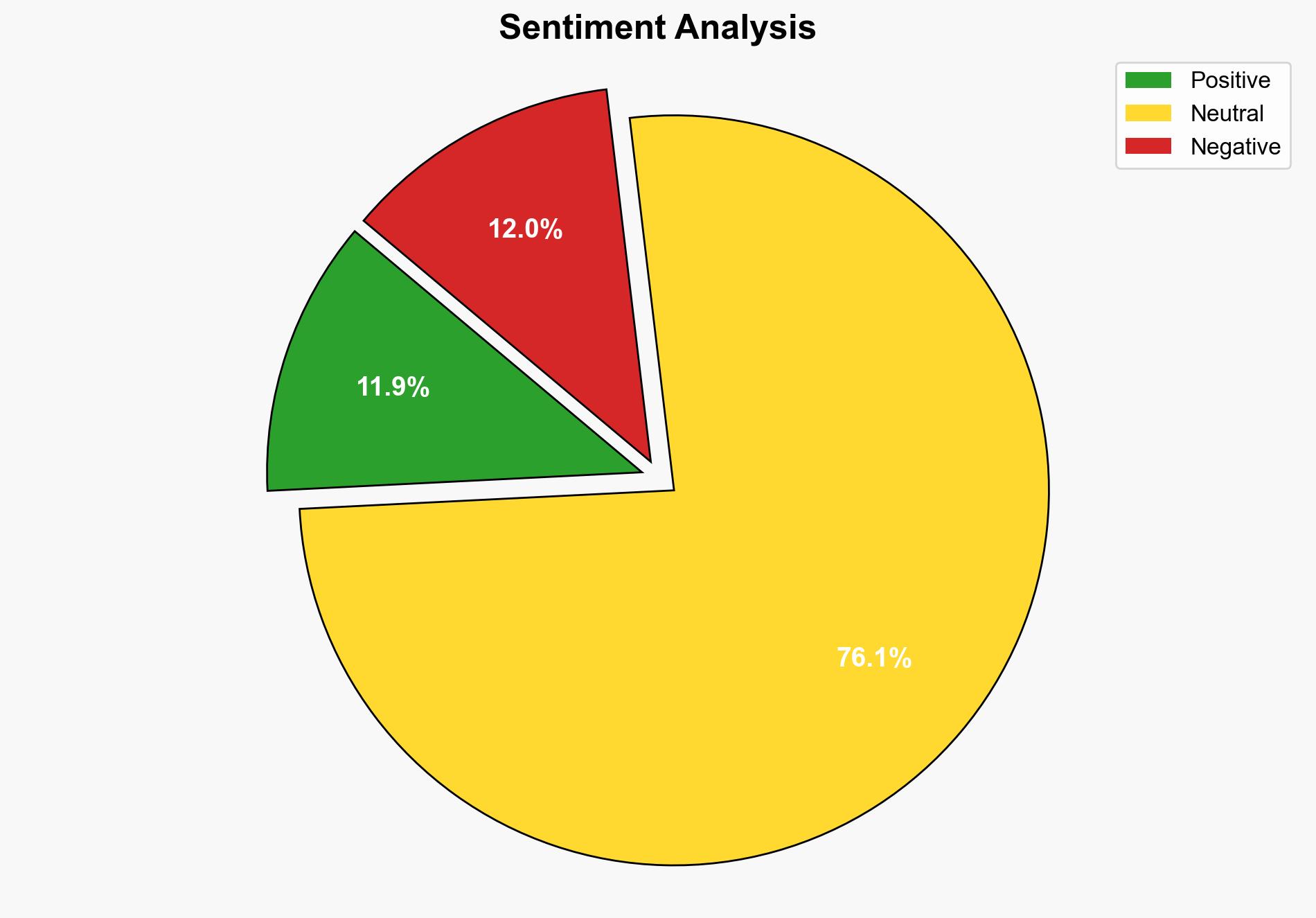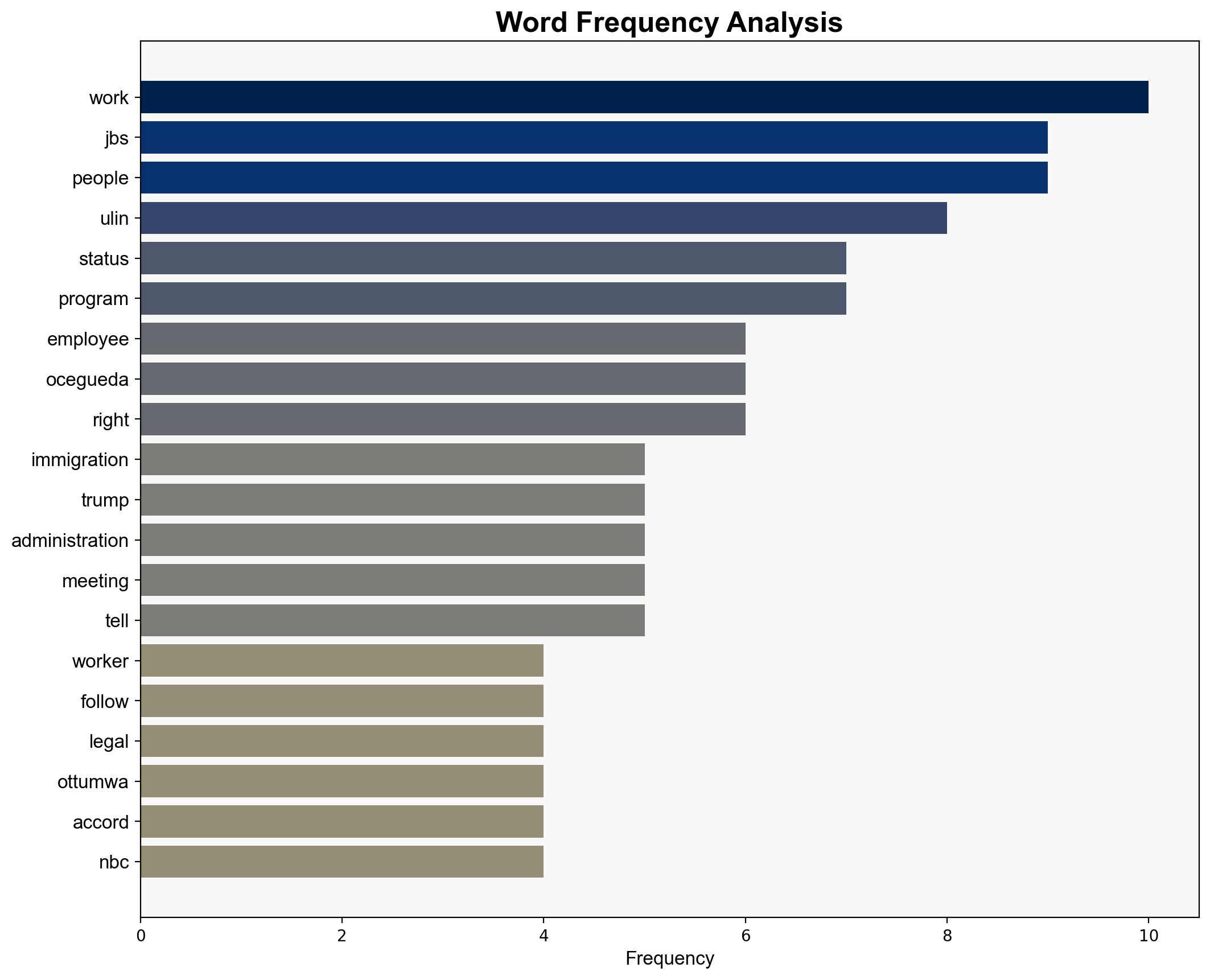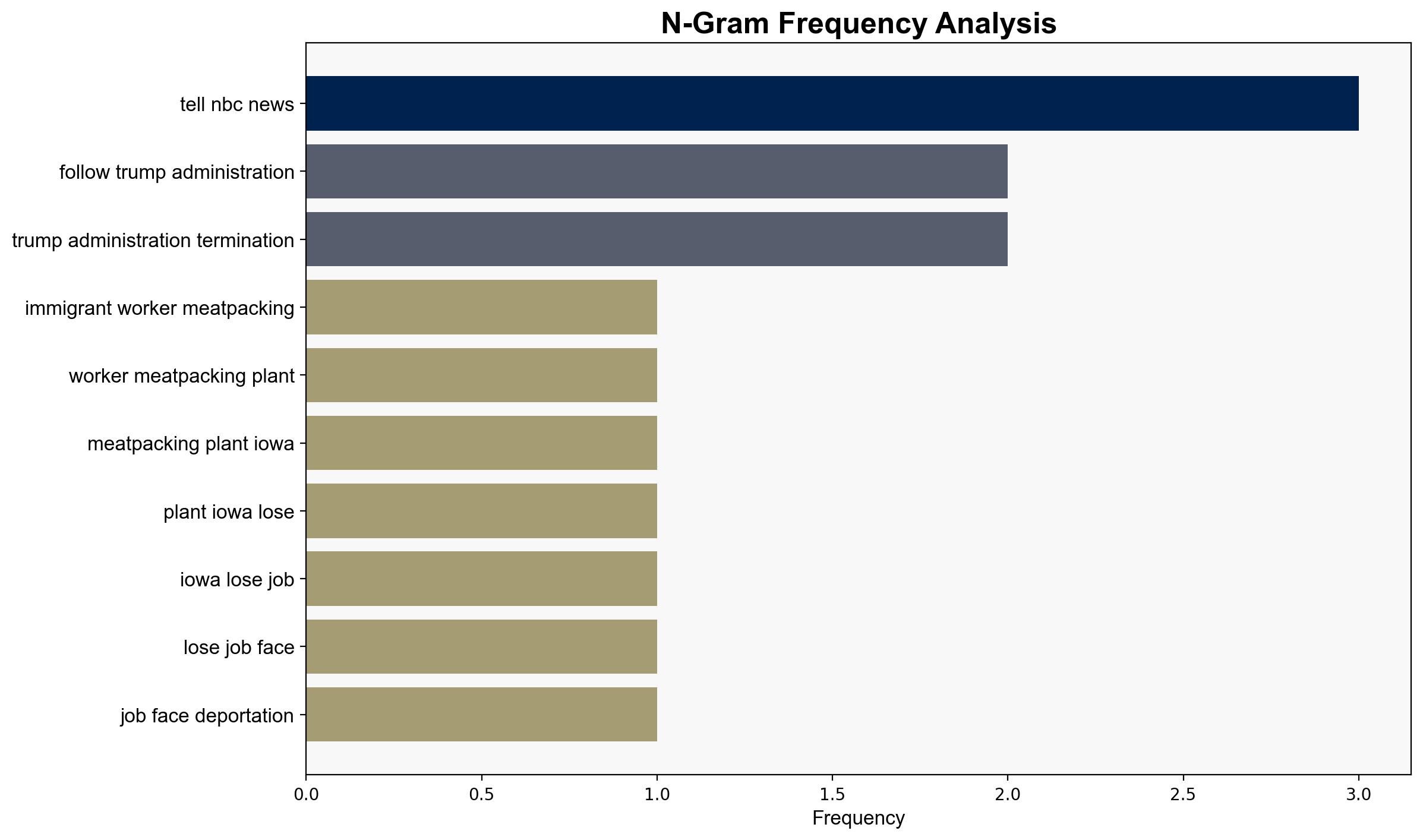Hundreds of meatpacking workers with work permits lose their jobs following Trump immigration crackdown – NBC News
Published on: 2025-07-30
Intelligence Report: Hundreds of meatpacking workers with work permits lose their jobs following Trump immigration crackdown – NBC News
1. BLUF (Bottom Line Up Front)
The most supported hypothesis is that the termination of work permits for immigrant workers at the JBS meatpacking plant in Ottumwa, Iowa, is a direct result of the Trump administration’s enforcement of immigration policies, specifically targeting temporary programs like TPS and CHNV. This action aligns with the administration’s broader immigration strategy. Confidence level: Moderate. Recommended action: Monitor the socio-economic impact on local communities and assess potential labor shortages in critical industries.
2. Competing Hypotheses
1. **Hypothesis 1**: The job losses are a direct consequence of the Trump administration’s crackdown on immigration, specifically targeting temporary programs like TPS and CHNV, leading to the revocation of work permits for affected individuals.
2. **Hypothesis 2**: The job losses are primarily due to internal company decisions at JBS, potentially using the immigration crackdown as a pretext to restructure or reduce labor costs.
Using ACH 2.0, Hypothesis 1 is better supported by the alignment of the administration’s stated immigration policies with the actions taken. Hypothesis 2 lacks supporting evidence from the source, as there is no indication of internal restructuring unrelated to immigration policy.
3. Key Assumptions and Red Flags
– **Assumptions**: It is assumed that the revocation of work permits is solely due to policy changes and not influenced by other factors such as economic conditions or company-specific strategies.
– **Red Flags**: Lack of detailed data on the verification process used by JBS and the criteria for terminating employment. Potential bias in reporting from stakeholders with vested interests.
4. Implications and Strategic Risks
The immediate implication is a potential labor shortage in the meatpacking industry, which could disrupt supply chains and increase prices. There is also a risk of heightened tensions within immigrant communities and potential legal challenges. Geopolitically, this could strain relations with countries affected by the revocation of TPS and CHNV statuses.
5. Recommendations and Outlook
- Conduct a thorough impact assessment on local economies and industries reliant on immigrant labor.
- Engage with community leaders to provide support and resources to affected workers.
- Scenario Projections:
- Best Case: Policy adjustments allow for reinstatement of work permits, stabilizing the workforce.
- Worst Case: Escalation of deportations leads to significant labor shortages and community unrest.
- Most Likely: Continued enforcement with gradual adaptation by affected industries and communities.
6. Key Individuals and Entities
– Rick Johnson
– Brian Ulin
– Paulina Ocegueda
– Nikki Richardson
– Abigail Jackson
7. Thematic Tags
immigration policy, labor market impact, socio-economic stability, community resilience





